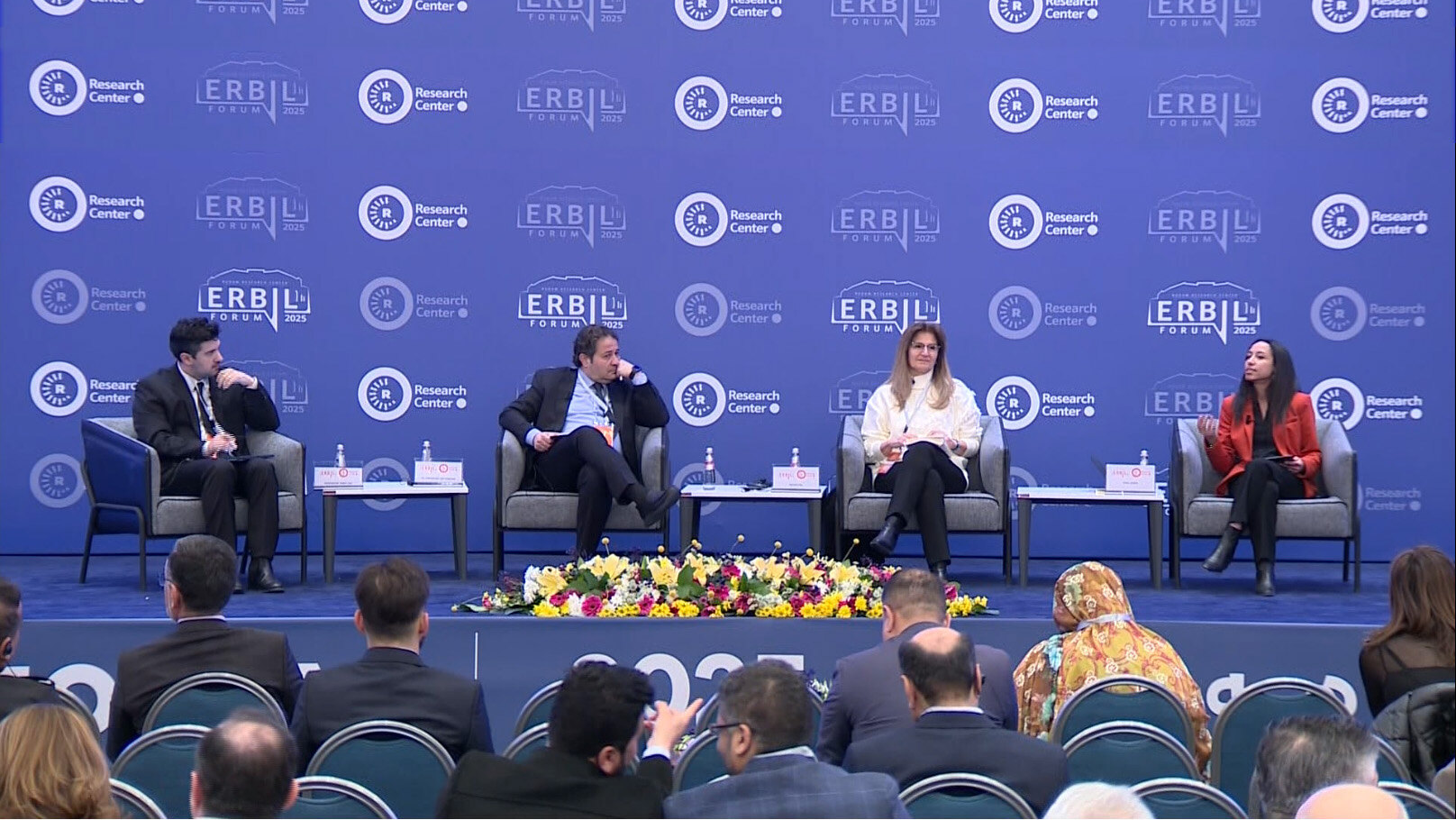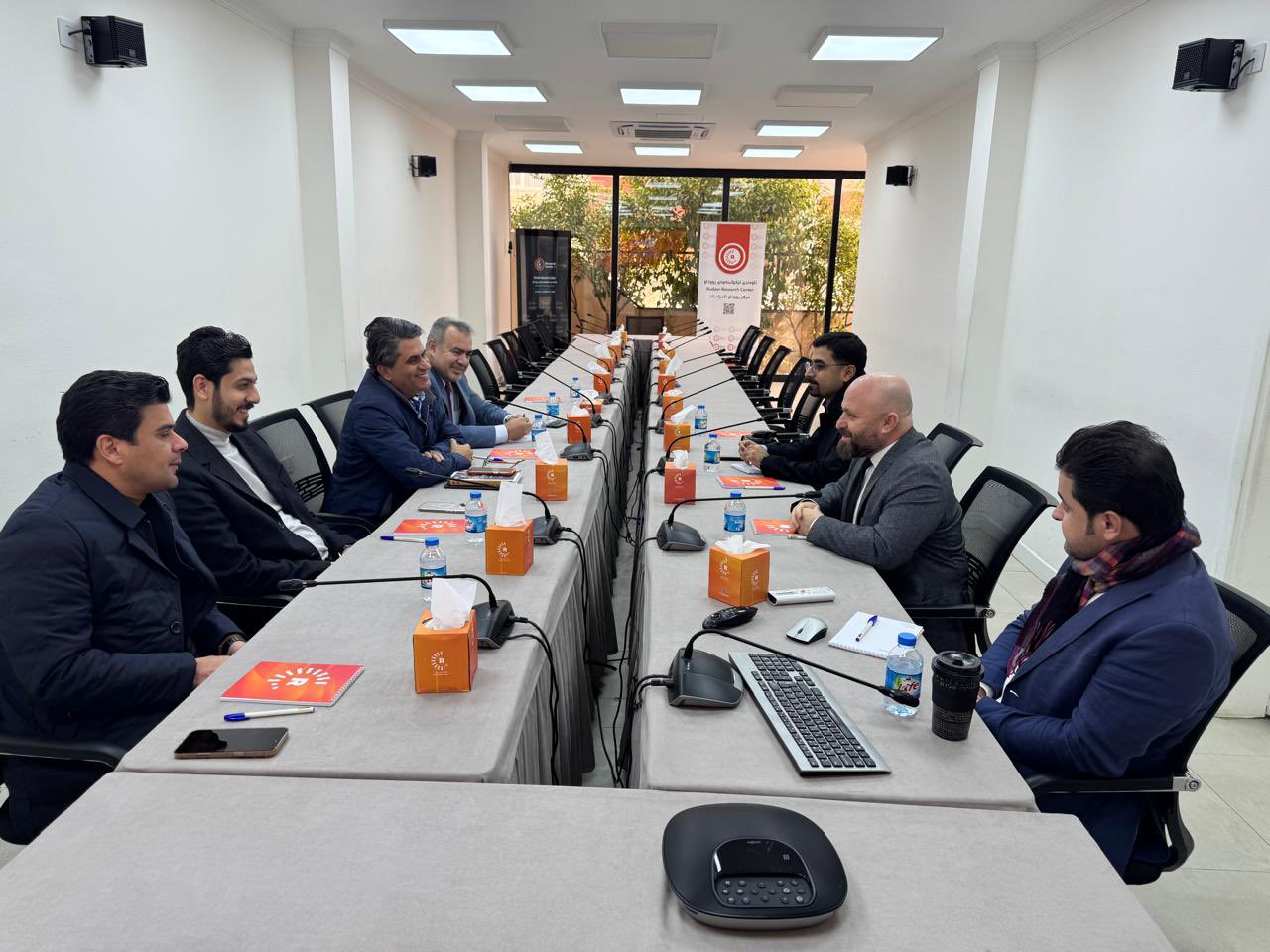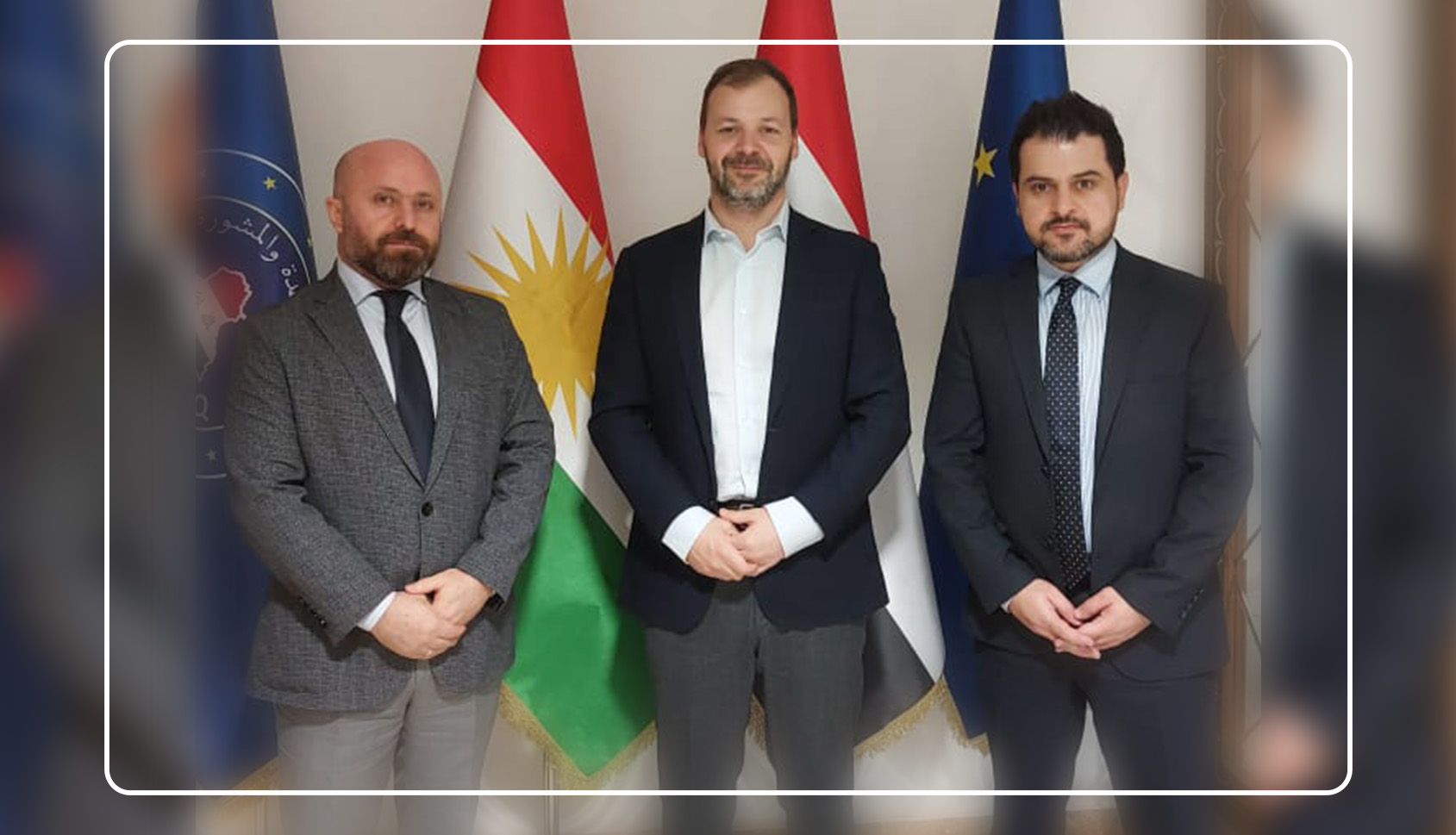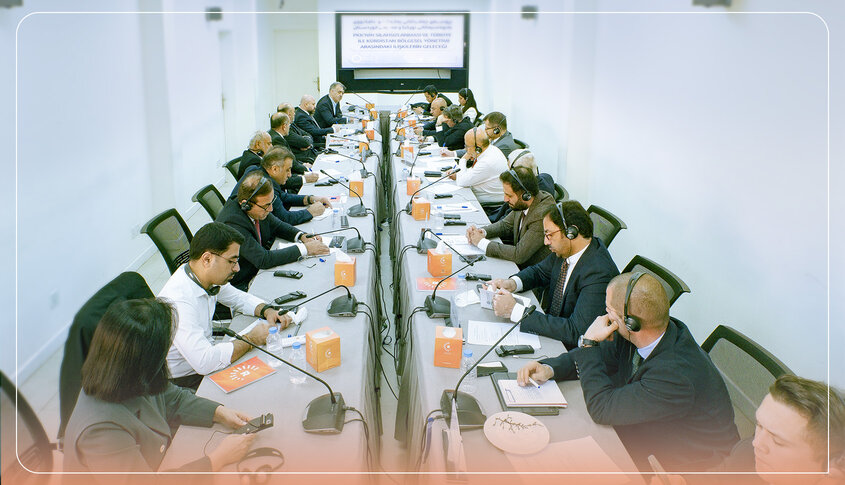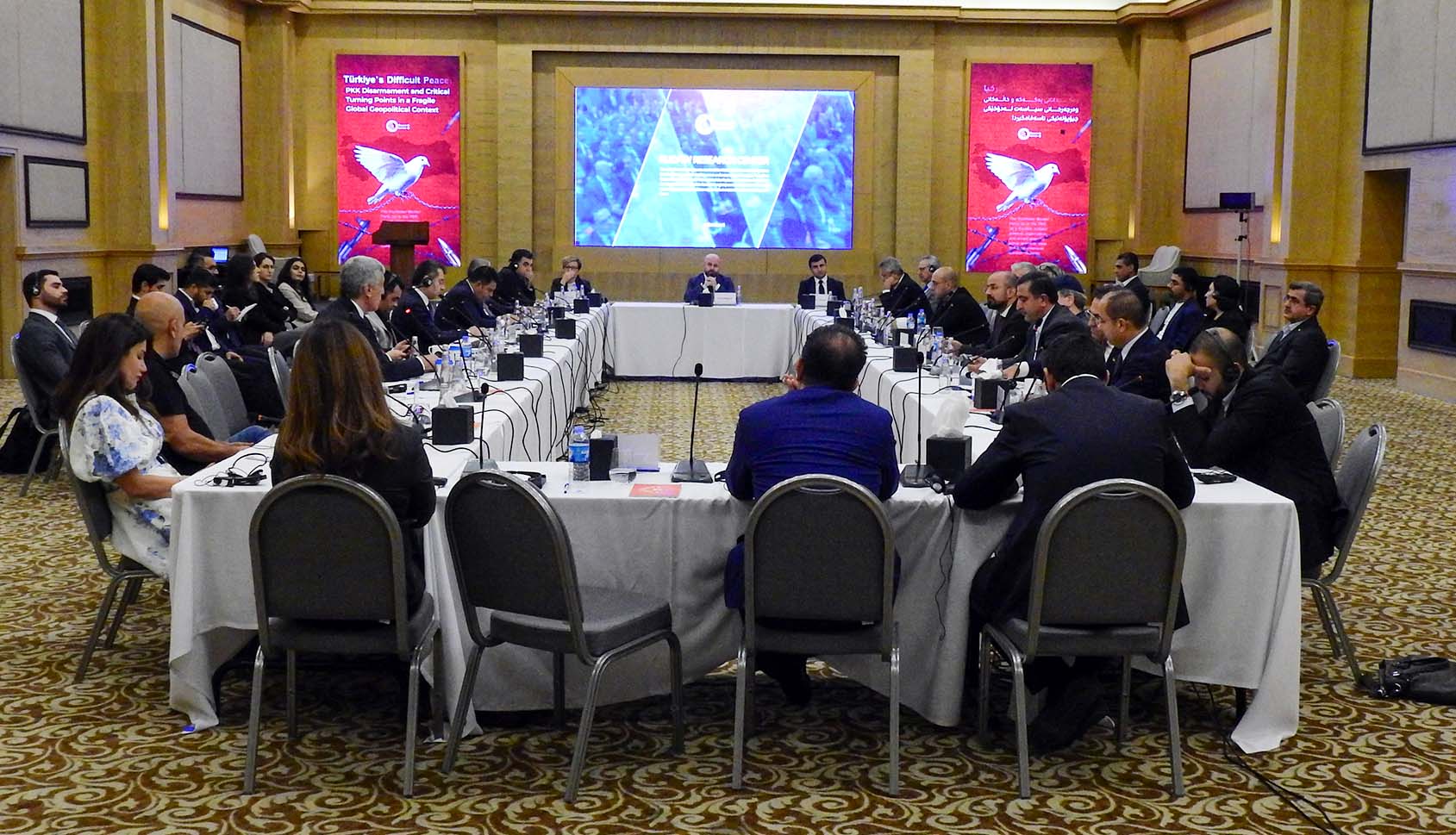Panel 08: Misinformation and Disinformation in Times of Conflict – October 7 until the fall of Bashar al-Assad
10-04-2025
Yusuf Can:
I think we can start now. Hello, everyone. This is Yusuf Can, and I am with the Wilson Center in Washington, D.C. Today, we’ll be discussing disinformation in times of conflict. I want to avoid overcomplicating things, so I’ll just refer to it as "disinformation," as it’s too cumbersome to distinguish between misinformation and disinformation for this discussion. Again, good morning, and thank you for this fantastic panel, as well as for our esteemed speakers.
We will focus specifically on disinformation in the Middle East. While disinformation is a global issue, there are unique aspects in the region that we want to address—how it impacts the Middle East, what we can do about it, and its effects on the ground. Information, as a concept, has always been central to war and conflict. However, in today’s digital age, with advanced technology, it has become much more prevalent, dangerous, and impactful in our daily lives.
We have a great panel today. We are joined by Dr. Mohammed Abu Rumman, Founder of the Politics and Society Institute and Associate Professor at the Prince Hussein School of International Studies at the University of Jordan. He also served as Jordan’s Minister of Culture and Minister of Youth. We also have Bayan Tal, a media and communications expert with over 40 years of experience. She served as the Director of International Media and Communications for His Majesty King Abdullah II and later became the first female Director General of the Jordan Radio and Television Corporation. Finally, we have Dina Sadek, a Resident Senior Fellow at the Atlantic Council’s Digital Forensic Research Lab in Washington, D.C. She leads research on malign foreign influence and disinformation in the Middle East.
Let’s begin our conversation. My first question is: What makes the Middle East unique in terms of disinformation? How can we counter it, and what are its impacts on the ground—particularly in conflict regions, which are unfortunately abundant? Dina, if that’s okay, I’d like to start with you.
Dina Sadek:
First of all, it’s truly great to be here. I’d like to thank the Wilson Center for organizing this panel and my fellow panelists for joining. I’d also like to thank our DAW Center for all their efforts in organizing this event.
When it comes to misinformation and disinformation in the Middle East, the question of what makes it unique is intriguing. In fact, there is nothing particularly unique about false information that deceives people. However, if we talk about uniqueness, it lies in how disinformation and misinformation in the Middle East are linked to specific events taking place in the region.
Since October 1, 2023, we’ve seen a significant rise in misinformation and disinformation both within the region and about it, especially in other parts of the world. Disinformation doesn’t only occur in Arabic or in the affected areas and dialects; it also has a global impact due to the different parties involved in the Middle East’s ongoing conflicts. Apart from conflicts, a significant amount of misinformation and disinformation in the region is fueled by democratic backsliding and reduced attention to press freedoms.
The most important and impactful form of misinformation and disinformation we are seeing today in the Middle East is the kind that can have deadly consequences—particularly in the ongoing and unfortunately expanding conflicts. This type of disinformation is often part of a larger strategic effort by different actors involved in the conflict. They promote narratives aligned with their worldview and policy goals. Additionally, there are incidental pieces of information surrounding specific events, such as hospital bombings or the return of hostages, which generate particular narratives that end up causing confusion among audiences and even leaders around the world.
Thank you so much.
Yusuf Can:
I’ll now turn to Dr. Abu Rumman with the same question. How do you view the Middle East in terms of its uniqueness regarding disinformation? What makes the region unique in how we can counter it, or whether we can even counter it? What are the impacts of disinformation, and what do you foresee for the future of the information landscape in the region?
Dr. Mohammed Abu Rumman:
If we talk about the Gaza war, I believe it has created a major and dangerous shift in the fields of media, propaganda, and political campaigning.
The war, in its second phase, was simultaneously a media war, and we can say it was a war of narratives or a battle of stories between Israel and the Palestinians, as well as a large proportion of Arabs and Muslims.
What we at the Politics and Society Institute in Amman observed was that a significant portion of the narratives circulating were false or misleading. In cooperation with several local organizations, we analyzed millions of social media posts and found that initially, the narratives in English were largely in favor of the Israeli side. Much of this content was based on Israeli propaganda, which included claims about killings of children and beheadings on October 7—claims that President Biden later acknowledged were untrue.
An important observation we made was that many of the accounts promoting the Israeli narrative were from India, not Israel. This suggested that Israel had prepared for the media and psychological war surrounding the Gaza conflict after October 7.
In contrast, another narrative war, or counter-narrative, emerged from Palestinians and Arabs, and a significant shift began. We saw, for example, how polls in the United States revealed that about half of American youth rejected the official narrative presented by mainstream American media.
Indeed, the second phase of the conflict was a war of narratives, a battle of stories between Israel and the Zionist lobby in the United States on one side, and the Palestinians and their supporters in the Arab world on the other.
One point I want to emphasize is that after the Gaza war and the recent events, we can all say goodbye to media professionalism. We can no longer speak of media freedom or professionalism, even in Western media.
The difference is that, previously, when talking about the Middle East, global powers controlled the media. A key part of a state’s or government’s ability to shape public opinion relied on its control of media, information, and narrative.
In a later phase, Western media emerged as a different case, and media freedom was considered something entirely distinct. Even Arab countries, particularly in the early stages, lost control over the media, and social networks played a crucial role in reshaping the political landscape in the Arab world.
The younger generation relied on social media to escape the control of totalitarian systems, but now, rather than solely being under the control of those systems, we see a dangerous convergence between these regimes and propaganda or public relations companies.
The monopolization of people's beliefs through most media institutions has gained even more importance. Instead of simply controlling the flow of information, people are now bombarded with information and media, but in a way that is directed by public relations firms working to influence thought and belief across the world.
Now, there is no longer a clear distinction between Arab countries and Western countries in this respect. We once believed that the freedom of information would foster greater freedom. However, I believe that today, more than ever, there are efforts to control the minds and psychology of the masses in most countries around the world. The Gaza war marked a dangerous turning point in this regard.
Yusuf Can:
Thank you so much, Dr. Bayan. Last but not least, I want to turn to you with the same question about what makes us unique in terms of disinformation, the media, and how the government approaches it. What are the problems we face that don't necessarily exist outside the Middle East but are more prominent or less prominent here in the region?
Bayan Tal:
Thank you, Yusuf. Thank you, everyone. Hello, and thank you to Woodrow Wilson and the Wilson Center for the invitation. I would like to build on what my co-panelists have said and focus on two key points. First, I want to discuss the genocide in Gaza and how it has affected the flow of information, as well as freedoms.
We have two key issues to address: the increase in misinformation and disinformation, and how Western mainstream media has assisted and justified the war in Gaza. As UN Special Rapporteur Francesca Albanese has stated, she is also calling for an investigation into the role of Western mainstream media in the war on Gaza.
The second point is how this situation has impacted freedom of expression in the West, particularly in the United States and other Western countries. Journalists are being silenced, in addition to being killed, of course, in places like the West Bank, Gaza, and Lebanon. More than 200 journalists have been killed in this war—more than in any other conflict in history.
This is also undermining free speech for artists and academics, and protests are being banned in the West—especially pro-Palestinian and anti-Zionist protests. The media has carried and accepted, as Dr. Abu Rumman stated, the Israeli narrative and promoted it throughout this conflict.
However, I believe there are two positive developments emerging from this situation. First, there has been a rise of new players in the media—young journalists, content creators, and influencers—who have played a key role in promoting the true Palestinian issue, providing context that was absent in Western media. Second, there is now a growing understanding of the suffering taking place in the West Bank, the brutal Israeli occupation, and the ethnic cleansing and genocide being perpetrated against Palestinians. This understanding is growing in the West.
What we need to do, if I may, is to address the issue of disinformation and misinformation. Scientists have drawn an analogy between misinformation and viruses because when you say a lie or misinformation "went viral," it is akin to how a virus spreads. They believe that in order to grow immunity in the public, we need media and information literacy skills. This is how you can immunize people against the "virus" of misinformation. Some people unknowingly spread misinformation, while others become silent carriers, passing it along without playing an active role in its spread. There are also those who are immune to misinformation and stop it in its tracks. So, we need to increase immunity in the public—from 10% to 20%, to 50%, to 90%. That is what is needed now, and this is something we can discuss in more detail later.
Yusuf Can:
I’m going to follow up with a question about media literacy after my question to Dina. Actually, I want to turn to you. We’ve talked about Gaza, Israel, October 7th, and there’s also the Syria component right now. There’s a lot of disinformation and propaganda about that online and in mainstream media too, not going to lie. So, I want to ask you: your work focuses on digital forensic analysis. You look at how online operations are coordinated, analyzing attacks, if you will—if that’s the right terminology. I want to ask, what has been your experience with regard to the Middle East in the past couple of years when it comes to examples that have occurred online, whether it’s state actors or non-state actors? Because, let’s be honest, both are involved. It’s not just one single state—numerous states and actors are involved, one against the other, using information as a weapon. So, please go ahead.
Dina Sadek:
Thanks, Yusuf. Since October 7, my colleagues and I have been monitoring conversations on several social media platforms. I can tell you that the first perpetrators of misinformation and disinformation are average users, like all of us. During times of uncertainty, it is human nature to sometimes speculate, and some people are more susceptible to believing that information than others. Average users online on social media platforms are not as careful as we would like them to be. Confirmation bias is very much alive. People tend to go online and even to traditional news outlets and newspapers, seeking news and information that aligns with their worldview and what they want to see in the world.
I would say that this played a big role in the spread of misinformation. Part of the misinformation being shared comes from unwitting users who do not know that what they’re sharing might be false. But other users share that information just in case it’s true, hoping to reach more people, and that’s not necessarily the best practice.
That was the first thing that happened after October 7, which caused a lot of confusion about how the events transpired, who was involved, and what might happen next. As for state actors, in this particular conflict, we have seen significant efforts from the Israeli government utilizing social media platforms to promote its views and narratives about the war. We have seen this activity mostly on X (formerly Twitter), where a number of social media accounts operated by the Israeli government push their narratives. We have also monitored Hamas’ activity on Telegram, which has shared significant amounts of propaganda and violent narratives, often sensationalized to provoke a rise in people during a very critical and volatile situation.
But these are not the only two actors involved. As I said, misinformation about this particular conflict exists in all the languages you can think of. We’ve even seen it in Spanish. It’s remarkable that, even though we’re so far from the region when you consider the actors involved, they are not always the ones you might think of. State actors often work through private firms to promote their propaganda, maintaining plausible deniability and making it much harder to attribute disinformation campaigns. This makes it even more difficult to hold perpetrators accountable, whether they are state actors, non-state actors hired by state actors, or non-state actors and amateurs who spread their own disinformation online.
Yusuf Can:
Thank you so much, Dina. Building on your answer, my apologies, but I want to turn to you, Dr. Abu Rumman. Given your extensive experience in government and regulation, I would like to get your perspective. When you responded to the first question, you painted a relatively grim picture of social media and its impact on how we receive information. Yes, there is the regulation component, and there is always criticism that governments are relatively slow to respond to changing technologies and the ways people use them. I want to ask, how much truth is there to this criticism of government regulation? And how should governments respond in general? In the digital world, no matter how much you want to control it, it’s very hard to actually regulate it to the extent necessary to address the issues fully.
Dr. Mohammed Abu Rumman:
I think after the Arab Spring, most Arab countries realized the danger and importance of social media platforms. They discovered that the iPhone, which was once seen as a device for entertainment and communication, is now one of the most dangerous political tools. I’m not talking about pagers; I’m talking about iPhones. It has become the most powerful political instrument in the hands of the people of the Arab world because it broke all the rules of traditional political games, redefined the political field in the Arab world, and changed the political players.
As Bayan mentioned earlier in her social media analysis, in all Arab countries, the reach of traditional media might not extend beyond five or six million viewers, but one blogger can reach fifty or sixty million people and completely alter the narrative.
Arab countries realized they could no longer treat their relationship with social media and the digital world as secondary. So they entered this realm, attempting to regulate social media and the digital world by setting rules and penalties. However, their approach was more negative than positive.
They tried to limit the influence of social media, but they didn’t understand that social media is a new world that requires a different approach.
I think what happened was an attempt by Arab countries to adapt. We saw in the Gaza war that Arab media outlets, any Arab media, tried to defend and broadcast the views of the governments they represented through writers and politicians.
What I encountered or noticed most in the area of media freedom was that even channels like Al Jazeera, Al Arabiya, and others were engaging in directed media. That is, the same guests and opinions were always featured.
Additionally, the Gaza war marked a turning point for media freedom and journalistic professionalism. Everyone seemed to focus more on political propaganda than on media integrity.
There has been a flood of social media activity in the Arab world, significantly impacting both Arab public opinion and Arab politicians. Many countries have resorted to using "electronic armies"—cyber forces that push government narratives through social media channels, using both real and fake accounts.
I believe the influence of social media is still extremely strong and dangerous. A negative trend we can observe in the Gaza war, for example, is that platforms like Facebook, X, and Telegram tend to favor one narrative over another. For instance, it is difficult to post anything that supports the Palestinian cause because platforms like Facebook and X often block such content.
When the younger generation in the Arab world sees how countries that advocate for media freedom and political liberty—like the United States—censor and discriminate against narratives that contradict their own, it creates a paradox that confuses Arab youth.
While freedom of the press is supposed to promote democracy and liberalism globally, the younger generation in most Arab and Islamic countries has come to view these freedoms as a lie. The very countries that claim to protect freedoms are often the ones that actively block and fight against them. This is a growing risk, as it can fuel extremism in the Arab world.
Additionally, it is driving more young people to use social media to join extremist movements, mobilizing them against existing political systems and, in some cases, against the United States in the region.
Bayan Tal:
Thank you so much. Okay.
I think, just for everyone’s understanding, media literacy essentially teaches people how to consume media and how to produce media ethically and positively. It is based on five components:
- Accessing media – Knowing where to look for information and going to the right sources.
- Analyzing media – Understanding the messages, who created them, why they were created, and how they impact you. It’s important to recognize that each person interprets messages differently based on their convictions, values, culture, and environment.
- Reflecting on media – This means being more compassionate and understanding in how we engage with media content.
- Producing media – Creating media is extremely important, especially for young people. It empowers them to be active participants in their communities and counteracts negative or radical media.
- Acting – Using platforms, such as social media, to create change in communities.
In Jordan, we have introduced these skills into textbooks. Over the last few years, the country has been revising its textbooks, and I lead a team of experts working to integrate these skills into the new curriculum. We’ve also included units on media and information literacy. Creating a generation of critical thinkers is vital for any society, and this is part of the solution—introducing media literacy into schools. Jordan is the only Arab country that has done this, and the Arab League has asked us to help other Arab countries introduce media literacy as well.
Our strategy involves four components:
- Introducing media literacy in schools, universities, youth centers, and the public sphere.
- Government cooperation is essential. Without the support of government bodies, like the Ministry of Education and the National Center for Curriculum Development, we wouldn’t have been able to make the progress we have.
- Civil society plays a critical role. Civil society in Jordan is strong, and I began this program at the Jordan Media Institute, where we work with civil society members, including leaders such as Samar al-Haj Hassan from the National Center for Human Rights and Dina Al-Bashir, a member of the Jordanian Parliament.
- Free speech is the cornerstone of all of this. Without it, nothing can happen. We need to raise the level of freedom of expression and ensure people can express themselves without fear. Free media is also crucial, as public trust in media is declining, particularly in Arab countries where media is often state-controlled. Independent media organizations are few, and many remain censored by governments. Introducing independent media is key; otherwise, we cannot address real issues, like suffering or occupation, through professional journalism. Some still view media as merely a tool for propaganda, which is concerning. Media professionals sometimes see themselves as public servants or government representatives, which is unhealthy. I also support public service media, but it’s becoming increasingly difficult to maintain, even in the West. For example, public service media in the West has failed to fulfill its role as independent professionals, as evidenced by their coverage during the Gaza genocide.
Yusuf Can:
For the sake of time, I would like to turn to the audience for any questions they may have. Please keep your questions brief and concise, and avoid making comments. Thank you. The gentleman in the gray jacket over there.
Question:
Good morning. I have a general question. These gentlemen have discussed the media, its influence, and the limits of freedom. They also mentioned the confusion caused by an influx of journalists during the Hamas-Israel war. My question is: How many of these free and independent journalists were prepared for the tragedy and death that occurred in Sinjar, or how many sacrificed their lives to publish information?
Bayan Tal:
Thank you. While I’m not an expert on ISIS, I can share some insights. The ISIS era should have been a major lesson for us. When ISIS took over a region, the first thing they did was change textbooks, focusing heavily on education. They altered their tactics to control minds more effectively. They were highly active on social media, targeting young people with videos, even creating songs. They were very effective and managed to recruit Jordanians online through these methods. We did not learn from that experience. Our education systems still do not promote critical thinking; much of it is still didactic, which does not align with the challenges children face daily—whether at home, on the streets, or online. We need a massive revolution in education to address these issues.
Thank you very much.
Yusuf Can:
I was informed by Rudaw that we are out of time, so we must conclude the panel here. I hope we’ve been able to provide something useful. Thank you very much to the panelists and the audience.

